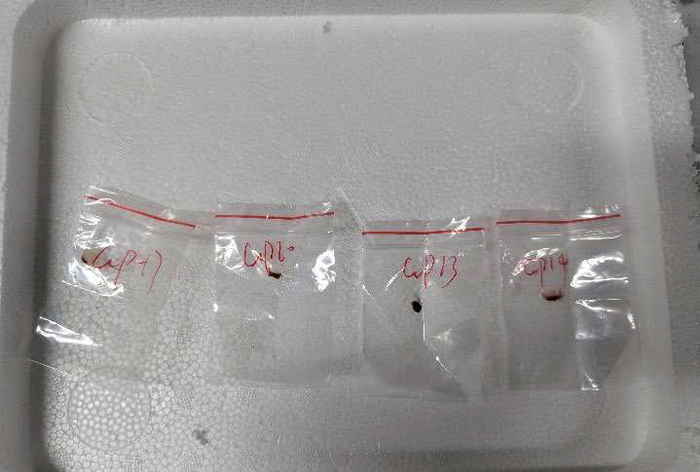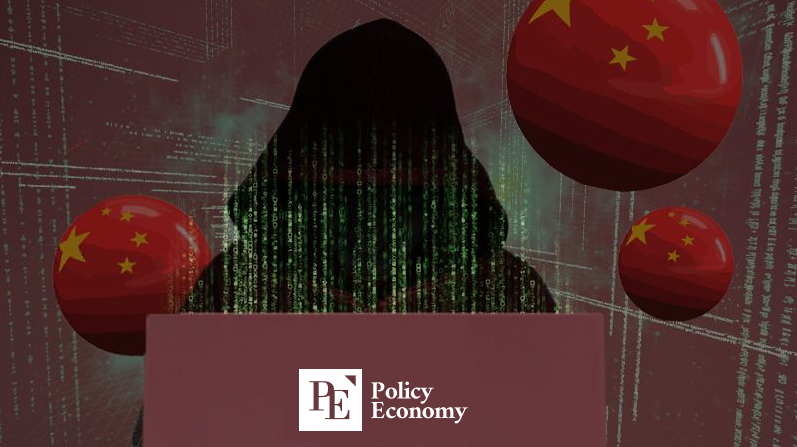Chinese Researcher Caught Smuggling Toxic Fungus into U.S.: “Spy Activity Rampant in University Circles”
Input
Modified
Chinese Researcher Couple Indicted for Smuggling Fungus into U.S. Seized Bacteria Deemed ‘Potential Agricultural Bioterror Weapon’ U.S.-China Tensions over Tech and Information Leaks Escalate into National Security Issue
Two Chinese researchers working in a U.S. university laboratory have been indicted for attempting to smuggle toxic bacteria into the United States. This incident has raised growing concerns in diplomatic circles that the ripple effects of the U.S.-China strategic rivalry are now extending into academic research settings. Observers warn that the conflict between the two nations is escalating beyond trade disputes and technological supremacy, posing direct threats to national security and the everyday lives of citizens.

Attempt to Smuggle Bioterror Fungus onto U.S. Soil
According to The Washington Post on the 8th (local time), the U.S. Department of Justice announced on the 3rd that Yuan Qingjian (33), a postdoctoral researcher at the University of Michigan's Microbial Interactions Lab, and Liu Junyong (34), a researcher at Zhejiang University in China, were indicted for smuggling and conspiracy involving a toxic fungal strain. The two, who are reportedly in a relationship, were caught at Detroit Airport last July trying to bring the fungus into the U.S. by hiding samples in their luggage after arriving from China.
The couple reportedly told customs officials they brought the samples for research and replication of various microbial strains in their university lab. However, the University of Michigan stated it had not granted any permission for the import or research of the fungus in question.
The fungus they attempted to bring in—Fusarium graminearum—is far from harmless. U.S. authorities classify it as a potential agricultural bioterror agent. According to Fox News, FBI agent Edward Nie testified in court that the mycotoxins produced by the fungus could cause severe vomiting and liver damage if introduced into the human body.
The scientific journal Science also highlighted the risks, noting that the fungus can cause head blight in key crops such as wheat, barley, corn, oats, and even rice. Infected crops lose commercial value and, in severe cases, the disease can drastically reduce yields—causing billions of dollars in economic losses annually.

U.S. Prosecutors Highlight Ties to Chinese Communist Party
The FBI has pointed to this case as further evidence that the Chinese Communist Party (CCP) is embedding operatives and researchers in U.S. institutions to target food security. Investigators reportedly found on the suspects’ phones a personal research evaluation report for a Chinese university and a signed loyalty pledge to "adhere to the principles of the Chinese Communist Party."
According to U.S. public broadcaster Radio Free Asia, the China Scholarship Council (CSC) provides funding to around 15% of Chinese students studying in the U.S. The report also noted that recipients of such scholarships are often required to sign agreements pledging to submit regular updates to the Chinese government before leaving the country.
This case is part of a growing trend of espionage involving Chinese nationals in U.S. academic institutions. In 2019, Harvard Medical School researcher Zaosong Zheng was caught trying to smuggle 21 biological samples related to cancer research back to China by hiding them in his socks at Boston Logan Airport. In 2020, former Tianjin University professor Hao Zhang was convicted of attempting to steal proprietary semiconductor technology from U.S. companies Avago and Skyworks.
In 2021, Xu Yanjun, an intelligence officer from China’s Ministry of State Security (MSS), was arrested for trying to steal aerospace technology from major U.S. companies including GE Aviation. From December 2013 until his capture, Xu reportedly tried to recruit industry experts under the guise of academic exchanges—inviting them to China under false pretenses while working with front companies and fake universities. His ultimate goal was to obtain classified information related to GE’s proprietary composite aircraft engine fan module—technology believed to be unmatched globally.
2020: U.S. Sent Home All CSC-Funded Chinese Visiting Scholars
Experts are drawing links between this recent smuggling case and broader efforts by the Trump administration’s second-term team to cancel the visas of Chinese nationals tied to the CCP or engaged in sensitive research. Increasingly, U.S. politicians and media outlets have voiced concerns about Chinese students potentially engaging in espionage. In response, the U.S. government has moved to tighten visa screening and management.
The Trump administration had already launched the China Initiative in 2018 during its first term, aimed at identifying Chinese spies and preventing intellectual property theft. As part of the initiative, in 2020 the University of North Texas ordered all Chinese visiting researchers funded by the CSC to leave. The CSC, a division of China’s Ministry of Education, supports international study and exchanges for Chinese students. Many of these researchers held J-1 exchange visas.
Investigations conducted at the time revealed that many researchers involved in CCP-led talent recruitment programs had received Chinese funding and were later indicted for technology theft. In response, the Trump administration also stepped up oversight of U.S. federally funded research programs—such as those supported by the National Institutes of Health (NIH)—to ensure foreign funding sources were disclosed.





















